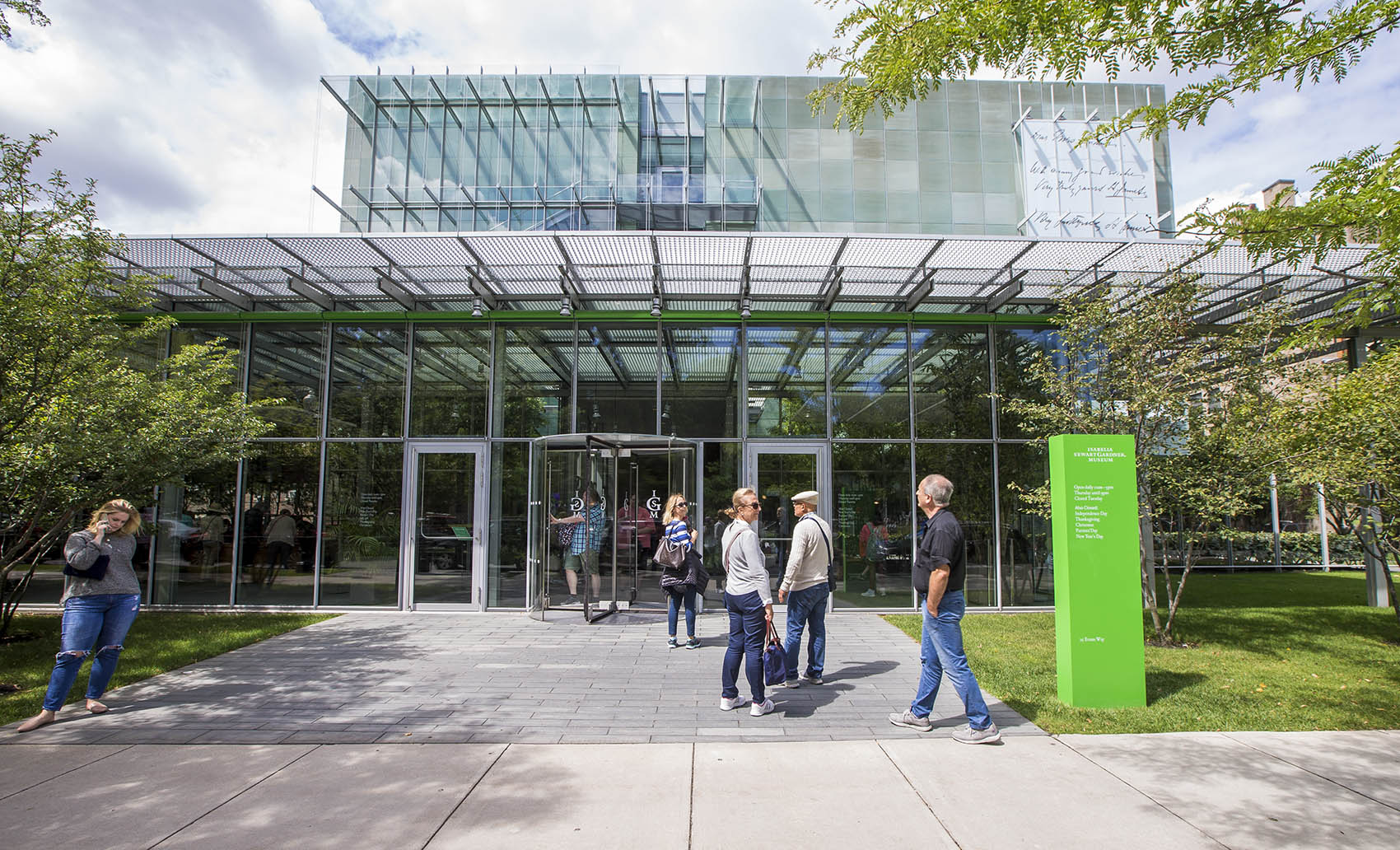Advertisement
Low-Income Residents Can Now Get Discounts At Many Massachusetts Cultural Institutions

Hoping to make the state's cultural scene more inclusive, the Massachusetts Cultural Council (MCC) launched a program Wednesday to provide low-income residents with free or reduced admission to more than 100 cultural institutions.
The EBT Card to Culture program provides free or discounted entry for the more than 758,000 Massachusetts residents with an Electronic Benefit Transfer card, which is provided to those in the Supplemental Nutrition Assistance Program (SNAP).
The cultural organizations participating in the project include the Arts Foundation of Cape Cod, Berkshire Museum, Boston Children's Museum, Boston Philharmonic Orchestra, the Isabella Stewart Gardner Museum and the New England Aquarium, among dozens of others. (Here's a full list.)
"The Mass. Cultural Council envisions a commonwealth where culture is inclusive, accessible and embraces our diversity,” said Anita Walker, the agency's executive director.
The MCC says the program is the biggest effort in the country to provide cultural access to low-income residents. One in eight Massachusetts residents qualify for the new program.
The savings can add up. At the Massachusetts Museum of Contemporary Art (MASS MoCA) in North Adams, a regular adult admission ticket costs $20. With an EBT card, the cost goes down to $2. At the New England Aquarium, EBT cardholders can pay $2 for entry, compared to the regular $27.95 admission fee.
Several cultural museums had already provided free or reduced admission to visitors with an EBT card. The MCC cites the Museum of Science as a model for the concept. In five years, the museum saw the number of EBT visitors increase from a few hundred to 13,000 a year.
The Institute of Contemporary Art began offering free entry to EBT card holders in July 2014. Each year since, the ICA has seen about 150 people use the program. That number may be lower than other institutions because the ICA already offers free entry every Thursday evening, one Saturday a month for families and on Monday holidays. In total, the three Monday holidays so far this year drew in 7,000 visitors.
Arts advocates believe cultural exposure, particularly for children, can work as an important factor in achieving upward mobility for low-income families. Research shows students who are engaged in arts learning have higher GPAs and lower drop-out rates.
“The commonwealth is rich with incredible cultural institutions that provide essential educational opportunities ... Their generosity will help families access opportunities once financially out of reach, and assist in breaking the cycle of multi-generational poverty," said Jeff McCue, the commissioner of the Department of Transitional Assistance, which works with low-income residents.
Museums also have a self-interest in casting a wider net of future patrons, said Gregory Liakos, MCC's communications director.
"The institutions know that this is their future. They have to accept it because this is the future of our country and our commonwealth," Liakos said, referring to the growing diversity of the nation's demographics.
Cultural institutions around the country have in recent years tried to diversify their audiences. The Musuem of Fine Arts in Boston, for example, which already provided reduced admission to EBT card holders, now offers free museum memberships to newly naturalized American citizens.
Liakos said it was "a lot easier than expected" to convince organizations to participate in the program.
"It was an idea whose time has come, in a way. The institutions, they already have access as one of their core missions," he said.
In the past day, Liakos said more cultural groups — like the Boston Symphony Orchestra — have reached out to the council, asking to be part of the program.
"Public support is predicated on the idea that every person in the commonwealth should have the opportunity to experience arts and the humanities. WIC and food stamps are food for the body, the arts are food for the soul," Liakos said.
This article was originally published on August 30, 2017.
